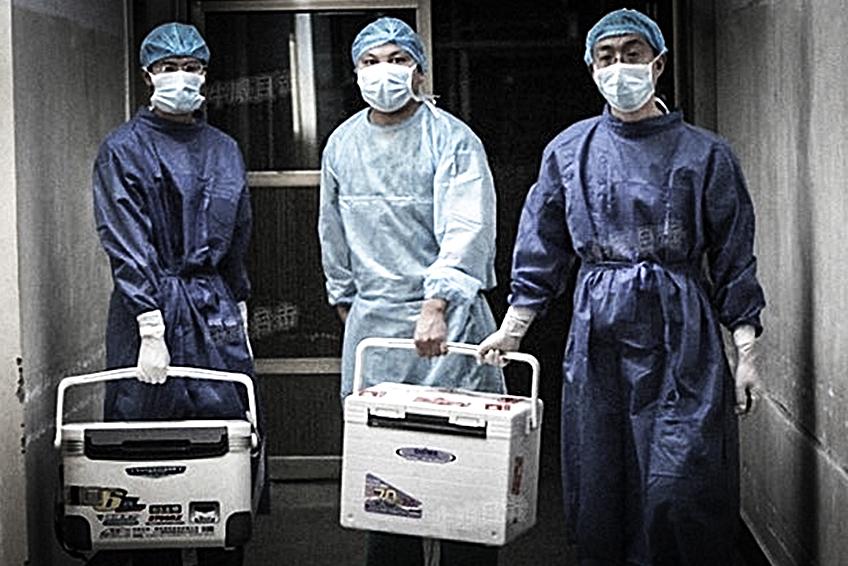For more than a decade, human-rights groups and independent investigations have suggested that the Chinese communist regime has been harvesting the organs of not just death-row criminals, but also tens of thousands of people jailed for their political opinions or religious faith.
Beijing claims that it no longer harvests organs from executed criminals, citing a 2015 law that bans the practice, and categorically denies claims about dissidents being killed for their organs.
Over the past nearly two decades, however, patients worldwide in urgent need of organ transplants have traveled to China for surgery, where they report being able to procure matching organs within weeks or months—far shorter than the normal waiting period in developed countries.
A recent investigation by human-rights researchers has found that the Red Cross Society of China (RCSC) is dragging its feet when it comes to setting up an organ-donation system, contrary to Beijing’s claims that all transplants in China now involve voluntary donors.
According to the World Organization to Investigate the Persecution of Falun Gong (WOIPFG), RCSC has planned to set up an infrastructure for voluntary organ donation since 2012, but virtually no progress has been made, apart from basic promotion and online registration services. WOIPFG was founded in the United States to investigate and publicize information about the persecution of Falun Gong, a Chinese spiritual practice that has been banned by the Chinese Communist Party since 1999.
WOIPFG’s latest report, published Oct. 21, reviewed the RCSC’s organ-donation system across its six main administrative districts in Beijing. The investigation, conducted in August and September of this year, concluded that the RCSC’s system appears inactive.
The investigators managed to contact Wang Chaohui, head of organ donation affairs at the RCSC in Beijing. In a phone conversation, he said that the Beijing RCSC hadn’t yet begun any actual organ donation and that no office to facilitate organ donations had been established yet.
Hospitals, he said, don’t cooperate with the RCSC for transplants but look for organs independently. Military hospitals do the majority of organ transplantation in Beijing, he added.
The six RCSC administrative areas that WOIPFG investigated were in the Haidian, Xicheng, Dongcheng, Chaoyang, Shijingshan, and Fengtai districts, where Beijing’s 23 organ-transplant sites are located, and where the majority of transplants take place.
The WOIPFG also investigated two donation stations, the Peking Union Medical College and Capital Medical University, as well as the Body Donation Coordination Office of RCSC in Beijing. The investigation confirmed that the RCSC in Beijing didn’t perform organ-donation work.
WOIPFG investigations show that since 2000, a year following the beginning of the persecution of Falun Gong, the organ-transplant industry in China grew exponentially. According to the group, at least 891 hospitals were conducting organ transplants nationwide. Over the years, Chinese hospitals have averaged thousands of transplants annually.
The report states that despite the lack of organ donations via the RCSC, the Peking University People’s Hospital conducted more than 4,000 liver and kidney transplants every year, according to the hospital’s records.
According to data released by Chinese authorities, the number of organ transplants in China has increased since 2015, WOIPFG reported.
In 2006, early evidence that the Chinese regime harvests organs from prisoners of conscience was brought to the public through the work of two Canadians, human-rights lawyer David Matas and former Secretary of State for Asia-Pacific David Kilgour.
Their research indicated that most of the prisoners, who are killed in the process, were practitioners of Falun Gong.




